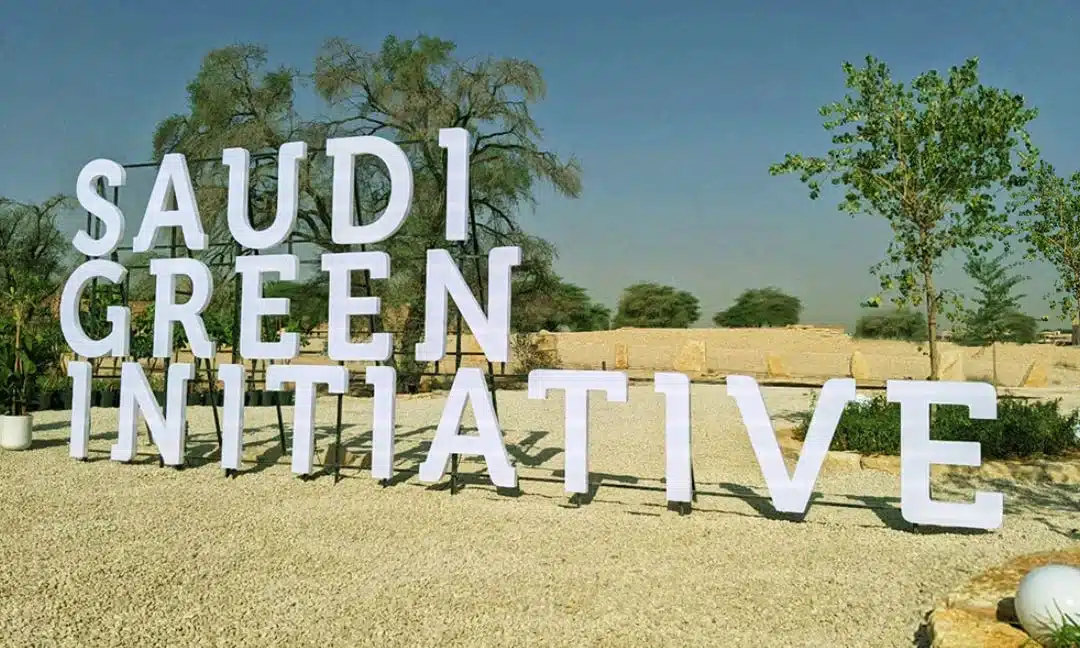Saudi Arabia 10 Million Trees Initiative is not just a plan—it’s a national movement toward environmental transformation and climate action. Spearheaded by the Saudi Green Initiative (SGI), the Kingdom is undertaking one of the world’s most ambitious afforestation programs. By 2030, Saudi Arabia aims to plant 600 million trees, with a long-term vision of planting 10 billion trees over the next 50 years.
This initiative stands as a vital pillar of Saudi Vision 2030, aiming to combat desertification, enhance biodiversity, reduce carbon emissions, and improve the overall quality of life in the region.
A Desert Turned Green: Ambitious Goals and Tangible Progress
Since the inception of the Saudi Green Initiative, the Kingdom has seen measurable progress. As of recent government reports:
Over 43.9 million trees have already been planted across the country.
More than 940,000 hectares of degraded land have been rehabilitated.
The target of planting 600 million trees by 2030 is now seen as well within reach.
Over 40 active afforestation projects are underway throughout the Kingdom.
Such milestones reflect Saudi Arabia’s unwavering commitment to sustainable development and environmental leadership in the Middle East.
Sustainable Techniques and Native Species
The SGI’s afforestation model prioritizes sustainability and ecological balance. Instead of overusing freshwater, the initiative utilizes:
Saline water
Rainwater harvesting systems
Treated wastewater
These water sources are used to nourish native tree species that are naturally adapted to the Kingdom’s arid climate. This ensures that reforestation efforts do not strain precious freshwater reserves while simultaneously restoring the natural ecosystem.
In turn, this leads to an increase in soil fertility, stabilization of sand dunes, and better carbon sequestration, contributing to long-term ecological benefits.
A Vision Aligned With Global Environmental Goals
The Saudi Arabia 10 Million Trees Initiative doesn’t exist in isolation. It is part of a broader commitment to achieving net-zero emissions and promoting clean energy. Under the SGI umbrella, the Kingdom is also:
Expanding renewable energy projects with a current capacity of 8 gigawatts—a 300% increase.
Aiming to generate 50% of its electricity from renewable sources by 2030.
Committing to a circular carbon economy approach to manage emissions holistically.
By aligning local initiatives with international environmental protocols, Saudi Arabia is positioning itself as a climate-conscious leader in the Arab world.
Social and Economic Benefits: Green Jobs and Entrepreneurship
The tree planting movement is also serving as a catalyst for economic and social development. Through public-private partnerships and community engagement, the initiative is:
Creating green jobs for Saudi citizens and residents.
Encouraging entrepreneurship in environmental services, such as nursery management, irrigation technology, and eco-tourism.
Promoting community participation via public planting campaigns and awareness programs.
These efforts are expected to enhance overall quality of life, particularly in urban areas, by improving air quality, reducing temperatures, and expanding recreational green spaces.
Combating Desertification and Enhancing Biodiversity
Desertification is one of the most pressing environmental threats in Saudi Arabia and the wider Gulf region. Through targeted planting, the SGI seeks to:
Restore lost habitats
Prevent further desert expansion
Increase green cover
Enhance biodiversity
From the Asir Mountains to the Eastern Province, different climatic zones are being targeted with region-specific strategies, ensuring the most effective and long-lasting environmental impact.
Education, Research, and Innovation
Another vital component of the Saudi Arabia 10 Million Trees Initiative is its emphasis on education and innovation. SGI collaborates with:
Universities for climate research
Tech companies for smart irrigation solutions
NGOs and environmentalists for community mobilization
This fusion of science and local wisdom is creating a data-driven and people-focused approach to environmental management.
Monitoring and Transparency
The Saudi government has introduced digital dashboards and public reports to ensure full transparency of the initiative’s progress. Citizens and environmental bodies can now:
Track the number of trees planted
Monitor project locations
Assess ecological recovery via satellite data
This level of openness builds trust and ensures accountability, making the program more robust and participatory.
Saudi Arabia’s Commitment to Climate Action
The Saudi Green Initiative is a clear declaration of Saudi Arabia’s intent to take meaningful climate action. This is not just about meeting domestic goals but also contributing to:
The Paris Climate Agreement
The United Nations Sustainable Development Goals (SDGs)
Regional stability through environmental diplomacy
With a long-term commitment to plant 10 billion trees, Saudi Arabia is setting a global example for countries with arid and semi-arid climates.
International Recognition and Future Outlook
The initiative has already garnered international praise from environmental organizations and sustainability forums. As momentum builds, the future outlook is highly promising:
More public-private partnerships are being formed.
Smart forestry solutions like drone-assisted planting and AI-based monitoring are being explored.
Urban planning regulations are being updated to include mandatory green space quotas.
Conclusion: A Greener, Sustainable Tomorrow
The Saudi Arabia 10 Million Trees Initiative is more than a number—it is a testament to the Kingdom’s determination to lead a green revolution in the desert. Backed by robust planning, scientific research, and nationwide support, this initiative promises to reshape Saudi Arabia’s environmental future while making a substantial contribution to global climate goals.
As Saudi Arabia marches toward its 2030 Vision, this afforestation drive acts as a cornerstone of national pride, regional leadership, and a sustainable legacy for future generations.

